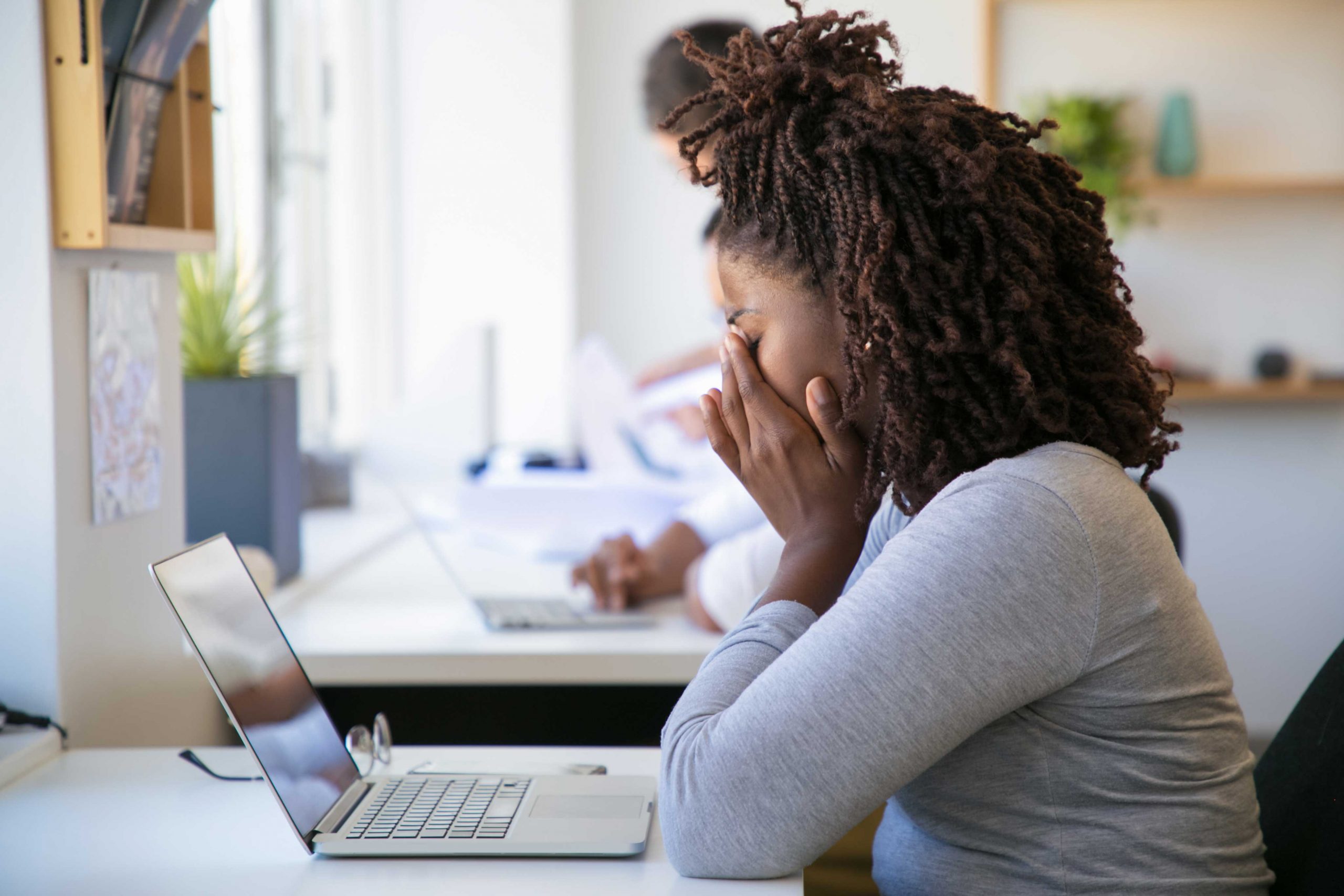Anxiety is the body’s natural response to stress. It comes in many forms in our lives and at work, it can be triggered by a number of factors such as fear of not meeting deadlines, fear of presenting, fear that work does not meet expectations or fear of not being able to appease a client or superior.
Feeling a bit anxious can be a good thing as it triggers the body’s fight or flight response – increased heartbeat, quickened breath, muscles tensed and ready to take action.
This response dates back to the days of our ancestors who had to ‘fight or flight’ in the face of imminent stress such as an approaching lip-smacking mountain lion.
These physiological stress responses can help you push yourself, enabling you to perform better during critical times. However, these intense periods of stress should be short-lived as your body requires recovery between episodes of stress.
If your stress or worrying continues for more than six months and if it impacts your life, you might have an anxiety disorder.
Physical Effects of Anxiety
The effects of anxiety are real and can often result in a person showing physical symptoms from the anxiety. The great news is that there are ways to combat and alleviate anxiety. But first, you need to be able to spot the signs.
The following list of symptoms can help you detect the common physical symptoms of anxiety:
A racing heart
You may not be able to see this in a colleague but a person with anxiety will be able to feel their heart physically pounding. This is a result of their adrenal glands churning out hormones such as adrenaline and cortisol, preparing them to react to a potentially massive threat (such as that mountain lion).
For someone with anxiety, it’s a vicious cycle. That racing heart can actually make them more anxious, compounding the anxiety. People with anxiety may also be more prone to high blood pressure and heart disease.
Trouble breathing
When anxiety hits, your breathing becomes shallow and restricted. Instead of filling your lungs with full breaths of air, you take short, quick breaths. You may feel like you’re choking or suffocating. This shortness of breath can lead to a full-blown panic attack. Panic attacks are not dangerous but they can be extremely terrifying and you may feel like you’re having a heart attack.
Mysterious muscle aches
Many people with anxiety feel a tightness in their neck, shoulders and back. It’s not soreness from working out or sitting at your desk too long, it’s a pain related to tensing your muscles for prolonged periods due to stress. You might also get headaches as a result of clenching your jaw when you are stressed.
Stomach pain
Another indicator of anxiety is stomach pain. You may think it’s a gastrointestinal virus or food poisoning, but anxiety can also be a cause of stomach pain. People with anxiety often have other gastrointestinal issues such as nausea, constipation and diarrhea. Feeling ‘queasy in the tummy’ when you’re anxious is a very real physiological effect of anxiety.
Shaking and trembling
You may have heard of people ‘trembling with fear’ before a performance or big event.
This trembling and shaking is not just in the mind. It is a physical effect of anxiety caused by a surge of hormones in the body.
Excessive sweating
Sweating is a common side effect of anxiety disorders. Unfortunately, sweating profusely such under your arms and in your hands can lead to even further feelings of anxiety, especially in a social or work situations.
Fatigue
Have you ever felt so tired you simply cannot get out of bed? The exhaustion you feel from anxiety is probably ten times worse. People with anxiety feel incredibly tired even though all they’ve done is sleep. Employees with anxiety may call in sick because they simply cannot pull themselves out of bed. People with anxiety get tired from constantly being anxious and on ‘high alert’.
Prone to colds
Being on ‘fight or flight’ mode all the time can put a strain on your immune system.
Anxiety from normal stress only lasts a short time so your body goes back to normal after the stressful situation is over. If you have chronic anxiety, your body doesn’t get a break and your immune system weakens, leaving you more susceptible to colds and viruses.
Workplace anxiety in Australia
One in five Australians (21%) have taken time off work in the past 12 months because they felt stressed, anxious, depressed or mentally unhealthy. The effects of anxiety can be incredibly debilitating preventing employees from performing at work and from thriving in their personal lives.
People who are suffering from anxiety often have trouble concentrating at work, may find it hard to meet deadlines, can be reluctant to speak in public and can be hesitant to join office social events which is why it’s important to address workplace stress and anxiety.
In conclusion:
Chronic anxiety can have devastating effects on employee morale and wellbeing. If you find that your employees or colleagues are dealing with a physical response to anxiety, contact us. Healthworks runs various Mental Health and Stress Seminars to help educate staff on how to manage stress and take care of themselves.
We also offer two-day Mental Health First Aid courses to teach employees how to be mental health first aiders within the office and in their personal lives. Get in touch with us and find out more.

